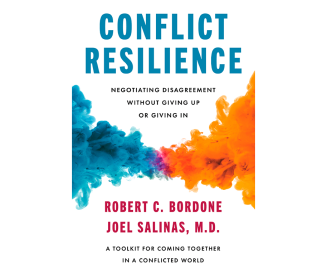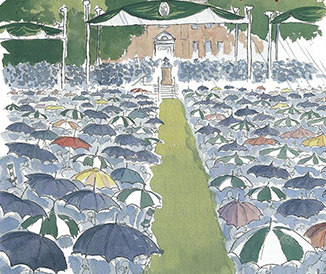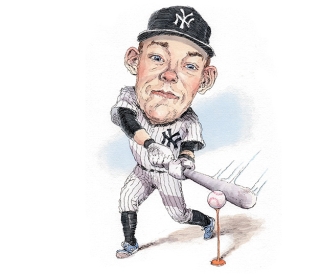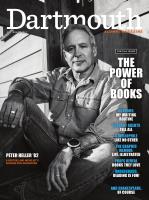Class Note 1957
Classmates remain engaged in a wide variety of ways. Bill Davidow’s latest book, Overconnected: The Promise and Threat of the Internet, is available in paperback from Delphinium books. James Fallows of The Atlantic names Bill as “one of the pioneers of the modern technology” and calls the book “clear, original and worth being read.”
Bob Shirley, identifying himself as “Meats the Fighter,” achieved his Warholian 15 by appearing as an extra in the movie, The Fighter: “I was sixth row ringside during the ‘Machine Gun’ Mangin mismatch that set Micky back so much.”
Though retired from full-time practice, Jim Taylor sees patients one day a week at the Duffy Health Center in Hyannis, Massachusetts, and is board chair of CapeAbilities, devoted to providing services to Cape Cod residents with disabilities.
Ellen and John Citron managed to move without changing post office box or phone number. They found the house they built a dozen years ago too large so bought a new one just down the road in South Harwich, Massachusetts.
Christian Weber’s widow, Joan, writes that she was part of a small group of nine that spent three weeks in Jordan and Israel, and then leased a London flat for two weeks with her daughter and grandson.
In his recent book, The American Dog at Home, William Second devotes a chapter to Dick and Carolyn Sunderland titled “A Very Doggy Family.”
When Gary Gilson told the listserv that he’d come upon a website with old radio shows free for the listening, so many classmates sent memories and anecdotes that I’ll carry some over to mix with regular news in the next issue. But here’s a start.
Not surprisingly, we were drawn to adventure shows when we were boys during the War. A lot of people mentioned the late-afternoon serials such as Jack Armstrong and Terry and the Pirates.
Howie Howland got his newspapers at 4:30 every afternoon. He had just enough time to deliver all 60 of them and then beat it home on his bike to hear Captain Midnight at 5:30.
Like Art Koff, Dave Keith had one of the captain’s secret decoder rings to decipher the secret messages at the end of the show, but he also had one from Little Orphan Annie. “I hated Ovaltine but I had to have it to get a glow-in-the-dark white plastic ring with a green glass stone. In a pitch black closet it looked just like an animal’s eye!” He also remembers that he listened to an Atwater-Kent in the living room, “its speaker hidden behind a screen with a frame shaped like a Gothic cathedral window.”
Joe Stevenson “sat engrossed, picturing Tom Mix with six-guns blazing….While listening to these shows most often I was drawing pictures of the cowboys.”
Among the lessons Bob Caldwell learned from The Lone Ranger: a love for the William Tell Overture, the word “yesteryear” and this practical tip: “If you’re chasing somebody into a dark cave from the daylight, always stop and cover your eyes with your hat so your pupils will dilate.” Keep it in mind.
—Michael Lasser, 164 New Wickham Drive, Penfield, NY 14526; mlasser@rochester.rr.com










